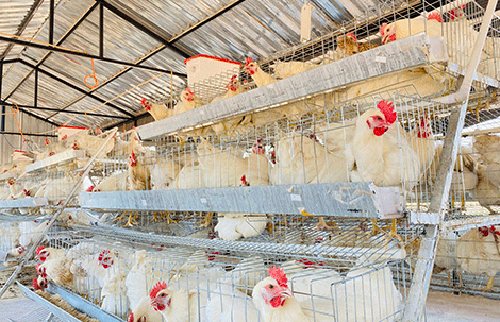KEETMANSHOOP – In the face of adversity, the Berseba Integrated Community Food Project manager remains optimistic about transforming it into a food basket for the southern village.
Raymond Jossop recently informed this publication that the project was faced with a myriad of challenges, chief among them a lack of manpower.
“The biggest concern now is that the volunteers who assisted me are becoming reluctant to bring their part,” he lamented, adding that they currently produce 90 eggs from their lay hens instead of the daily 360 eggs.
This is attributed to the difficulty of the chicken’s adaptation to southern weather patterns.
Another challenge is that the soil where they produce crops is too salty, forcing them to prepare the ground to get the fertile soil needed for green leaf crops like cherry tomatoes, green peppers and spinach during the next harvest.
“We did, however, receive 20 young olives in addition to 180 citrus trees, which we will grow as a test run and, if successful, will then venture into commercialising this produce,” he said.
Jossop continued: “I am very confident that this project will reap the necessary results this year since all infrastructure is already in place, and just needs human capital (volunteers) who can utilise it optimally.” He added that yields from the next harvest will be sold at affordable prices to the local community, while they will also donate some to school hostels and vulnerable residents.
The project is facilitated by the World Food Programme (WFP), which sourced funds from the British High Commission for Namibia. Technical experts from the WFP have also started providing training to the volunteers on the best use of drip irrigation from underground water pumped with solar systems.



